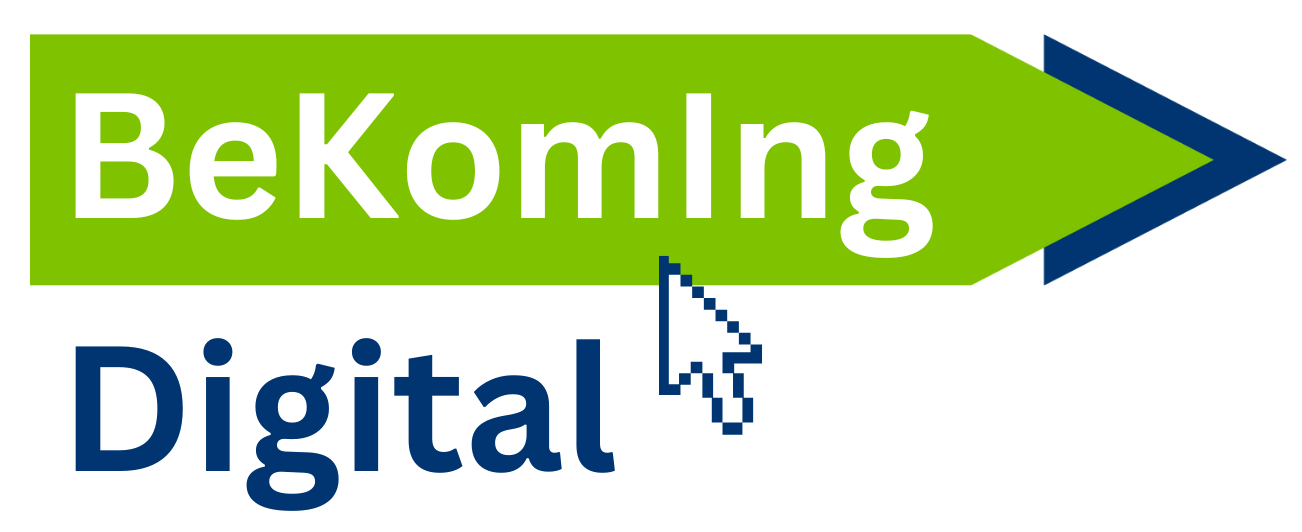|
The junior research group brings together the two megatrends "digitalization" and "demographic ageing" and examines them in the context of competence management. Digitalization not only has an impact on the way we work – for example, due to the Corona pandemic, increasingly digitally and from one’s home office – but also on the way we learn: e.g. via online platforms or in workshops that are held digitally with the help of videoconferencing tools. However, this raises the question of whether this "new digital learning world" corresponds to the learning habits and preferences of older workers. Research has repeatedly shown that older workers are not less capable to learn than younger workers, but they do it differently. Contrary to their younger counterparts older workers prefer learning concepts that are linked to practical knowledge and that anchor learning in the process of work. Nevertheless, it remains unclear how digital learning environments need to be created in order to be age-inclusive and meet these preferences.
Furthermore, the junior research group will investigate the role of negative and age-discriminating perceptions (“ageism”) regarding the digital competences and learning ability of older workers. If, for example, it becomes apparent that ageist ideas of older workers capabilities are influencing how digital learning settings are set up at company level, the risk of excluding older workers from digital learning settings – and with that lifelong learning opportunities – might rise. Against this background, the junior research groups aims to address the following research objectives:
The research work of the junior research group is divided into three work packages that use different methodological approaches within the framework of an innovative mixed-method concept. In addition to data analyses based on the German Ageing Survey (DEAS) and the Socio-Economic Panel (SOEP), an employee survey, qualitative case studies and interview studies as well as participative methods with older employees are planned. The junior research group is based at the Federal Institute for Vocational Education and Training (BIBB) and will be cooperating with the Institute of Gerontology at the University of Vechta, the Demographie Netzwerk (ddn) and the QualiService Bremen. |
News
June 2024 Some personal news: I got appointed as an assistant professor for "Employment and Education in Higher Age" at the Technical University Dortmund. Very Grateful for this opportunity. Whoop Whoop to our research group member Wiebke Schmitz for successfully defending her PhD thesis at the University of Cologne. You rock! Selina Staniczek presented her first dissertation paper at the 27th Nordic Congress of Gerontology in Stockholm. Congrats, what an achievement! April 2024 We started our expert interview study and looking forward to learn more about organisational perspectives on digital learning and older workers. First results then later this year. February 2024 Happy to announce that our team members were accepted to present at several international conferences in 2024. Amonst them PAA 2024 Annual Meeting in Ohio, RC28 Spring Meeting 2024 in Shanghai and 27th Nordic Congress of Gerontology in Stockholm. September 2023 Congrats to Wiebke Schmitz, one of our BeKomIngDigital team members, for receiving the Best Paper Award for early career researchers from the German Gerontological Association. Happy to present first results from the BeKomIng Digital project at the annual Conference for the German Association for Gerontology and Geriatrics (DGGG). July 2023 Our research group took part in the Research Innovation Lab on Ageing in a Digital Age 23 at the Goethe University Frankfurt. Thanks to the organizers for this amazing opportunity! June 2023 We had our first official Kick-Off meeting with our project partner Demografienetzwerk (ddn) in Bonn. Looking forward to collaborating over the next few years. April 2023 We welcome our second PhD candidate and research group member Selina Staniczek to the team. Yay! January 2023 We welcome our first PhD candidate Wiebke Schmitz to the research group. Happy to have you! September 2022 Official Start for the Junior Research Group at the Federal Institute for Vocational Training and Education in Bonn. Link to press release Juni 2022 Interview with Laura Naegele on the upcoming start of the Junior Research Group with "UniVersum" Link to article |
